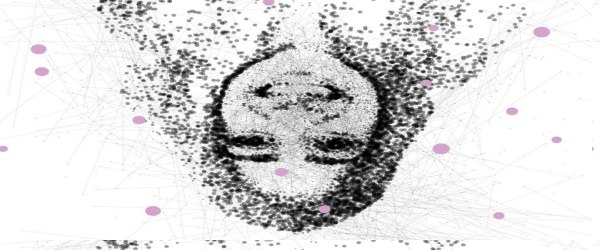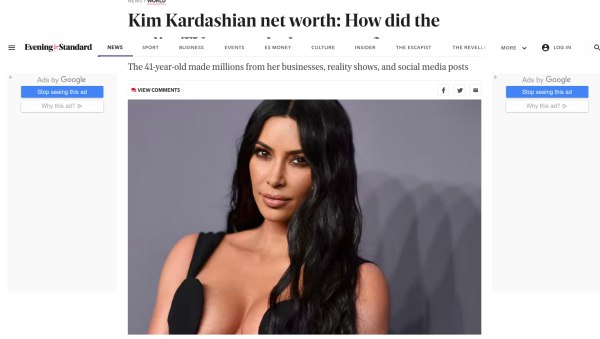Data cooperatives would not give EVERYBODY more power
Just ask Kim Kardashian.

There is a “Radical Proposal” over at the Standord Institute for Human-Centered Artificial Intelligence, about “Data Cooperatives [to] Give Us More Power Over Our Data”. Here, I argue that it is not radical, and not particularly attractive, or feasible.
(the parts in italic are quotes from the original article, the rest my own comments)
The two original problems: imbalances, and data aggregation
- We have a major power imbalance in our digital economy. People who produce data—i.e., all of us who use the internet—have essentially no power or control over our data, as well as very little understanding of how and by whom it is being used… the data economy is ruled by unfair competition… [ordinary people] have no means of either benefiting from sharing their data or opting out
- most data is collectively created, rather than individual property… our data is fundamentally collective rather than private property
Please stop a moment here, to fully appreciate the nature and ubiquity of the second problem: taken alone, the complete data from, or about any single individual and nobody else are almost worthless, in the overwhelming majority of cases. It is only the aggregation of data about different people, from the interaction of an individual with others, in different contexts, that creates both problems and opportunities!!!
The proposed solution: data cooperatives
“Because the data we’re creating is fundamentally shared, collective structures like data cooperatives are the appropriate vehicle to negotiate on behalf of data holders like you and me."
To address these problems, [some researchers] propose creating data cooperatives that would function as intermediary fiduciaries who would negotiate with companies and other entities to establish guidelines around the use of our shared data; set limits on who can view, store, use, or buy it; and route the benefits back to us: in dollar form, in-kind, or through recognition and access.
These cooperatives should “function as fiduciaries on our behalf, just as financial advisors and CPAs do."
In order to do that, the cooperatives should:
- have to jump multiple technological, economic, regulatory, and social hurdles
- [establish] reliable and secure ways to track the source of data as it is transferred and stored
- [develop] privacy-preserving machine learning methods for pooling data and unlocking insights from it
- [be supported by] regulations regarding privacy, data reuse and deletion, data interoperability, and portability
- [have ready answers to] pricing questions and …ways for data intermediaries to obtain and distribute that compensation
The limits of data cooperatives, explained by Kim Kardashian
There are three classes of core problems in this and any other “let’s cooperatively own and sell our data” proposal. The first is about complexity and scalability, because the real-world exeamples proposed in the article are about small, single purpose, isolated communities. They won’t scale, and the comparison with financial advisors is misleading. Just ask Kim Kardashian:

<u><em><strong>CAPTION:</strong>
<a href="https://www.standard.co.uk/news/world/kim-kardashian-net-worth-how-make-money-b997700.html" target="_blank">The many ways in which Kim Kardashian makes money are WAY EASIER to manage than **ALL HER DATA**</a>
</em></u>
Kardashian’s wealth is enormously bigger and more complex to handle than almost everybody else’s… and still, no financial advisor would ever need to handle everything about her intimate life, preferred sports or restaurants, food or fashion tastes, political interests, family history, religion, the sexual lives of all her relatives… to prepare her tax returns or investment plans.
The full lives of human beings (because this is what you mean when you say “data”) are way more complex than their money. They are the continuous interaction of several spheres that, if hosted in many unrelated cooperatives, possibly scattered over different legislations, could have both very little economic value to be sustainable, or too many legal and technological holes all around themselves to effectively prevent abuses.
In other words, to perform as advertised at the only scale (i.e. global) at which they should operate to make a difference, data cooperatives would have to be either unsustainably complex and expensive, or so integrated that they would simply move somewhere else the very same issues they should free us from.
The second problem is about the very origin of the problem, for which I see no acknowledgment in that article. Proposals like this are all about passively accepting, as if they were laws of physics, too many aggregations of data that simply should not exist in the first place, no matter where, or under which governance. These proposals, that is, all look to me too much like “let’s form a cooperative to own and rule a filtering system for the public pond in which we all dumped our waste, instead of stopping to dump everything all in ONE place, all unfiltered”
The third problem is discrimination, and perpetuating existing inequalities, like the tax rebates for photovoltaic panels that only benefit the owners of single-family homes.
Kardashian has enough interesting data to provide, and enough power to defend herself, to benefit from a data cooperative. The same is true, at least in theory, for everybody who got decent education AND can afford any home mortgage, or even just Amazon Prime, or booking vacations online every year.
Most users of Amazon, Facebook, AirBnB and so on, instead, may have very little to put or get in a data cooperative, be it actual data, awareness of why they should join in the first place, or any concrete possibility to manage their “membership”.
To conclude…
I have already written plenty about these problems:
- “A critique of data unions: are you ready to “retail your data”? - August 2022
- “New Compact on Data? Or New RULES and LESS Data? - October 2019”
- Above all, LIMITS AND RISKS OF “DATA AS MONEY” - May 2018
so all I want to add here is that if you want to create a data cooperative, go ahead. I mean it. It would almost certainly be better than what already exists. The problems I am really talking about are only the ideas that cooperatives:
- could ever be sufficient at any scale that should matter, without perpetuating existing inequalities or becoming just too complex to bear for the current average smartphone user of THIS world
- are actually necessary, instead of simpler laws that forbid certain practices, if not certain data aggregations, no matter who owns them
Maybe the first, meta-problem of certain proposals is that they start from the wrong level, that is “the economy”. The discussions, instead, should start where that article ends, that is “broader digital commons” or, let’s spell it explicitly, human rights and politics.
Who writes this, why, and how to help
I am Marco Fioretti, tech writer and aspiring polymath doing human-digital research and popularization.
I do it because YOUR civil rights and the quality of YOUR life depend every year more on how software is used AROUND you.
To this end, I have already shared more than a million words on this blog, without any paywall or user tracking, and am sharing the next million through a newsletter, also without any paywall.
The more direct support I get, the more I can continue to inform for free parents, teachers, decision makers, and everybody else who should know more stuff like this. You can support me with paid subscriptions to my newsletter, donations via PayPal (mfioretti@nexaima.net) or LiberaPay, or in any of the other ways listed here.THANKS for your support!